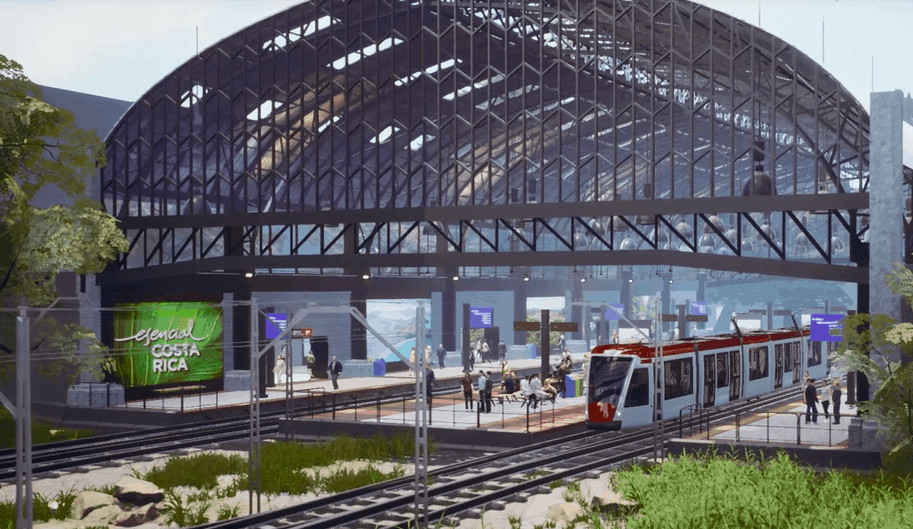Costa Rica will receive a $250 million loan from the UN Green Climate Fund to finance part of the construction of a five-line electric train, a government flagship project.
“The Green Climate Fund supports the electric train (…) It will have enormous benefits for the environment and users, promoting decarbonization and the economy,” said the country’s president, Carlos Alvarado.
Costa Rica is one of the countries in the region that stands out the most for the preservation of the environment, with initiatives such as eliminating the use of fossil fuels by 2050 launched by Alvarado himself and the search for renewable energy generation.
In 2020, 99.78% of Costa Rica’s electric grid was powered by renewable sources. It represented the sixth consecutive year above 98%, according to data from the Energy Control Center (CENCE).
The Green Climate Fund, an entity created by the UN in 2010, will also donate $21.7 million for other works that accompany the project, such as bike paths connected to some of the stations.
The electric train was a main campaign promise for Alvarado, who was elected as president of Costa Rica in 2018.
The work “seeks to provide a public transport system that connects a main axis from east to west of the Greater Metropolitan Area (GAM),” said Elizabeth Briceño, president of the Costa Rican Railway Institute (Incofer).
The total cost of the project, according to the government, is $1.55 billion, of which the Central American Bank for Economic Integration (CABEI) will cover $550 million, with a 40-year loan, with a 10-year grace period.
According to Casa Presidencial, the $250 million from the Green Climate Fund would finance part of the 550 million from CABEI, improving conditions.
The remaining $1 billion would come from foreign direct investment. However, a tender has not yet been called, as the approval of the loan is stalled in the Legislative Assembly.
The draft of the tender poster, published in 2020, would have generated interest from 52 companies, Incofer reported. The system would cover an approximate length of 84 kilometers, with 46 stations on five lines.
The return, according to Incofer, would be total benefits of $3 billion and a cumulative effect of 3.69% in the growth rate of the Gross Domestic Product (GDP) in the investment period, which would be in the period between 2023 and 2025 .






